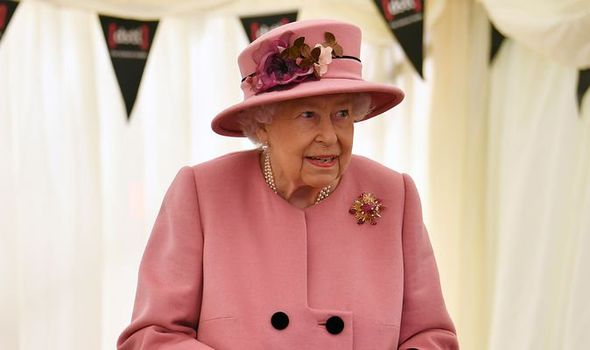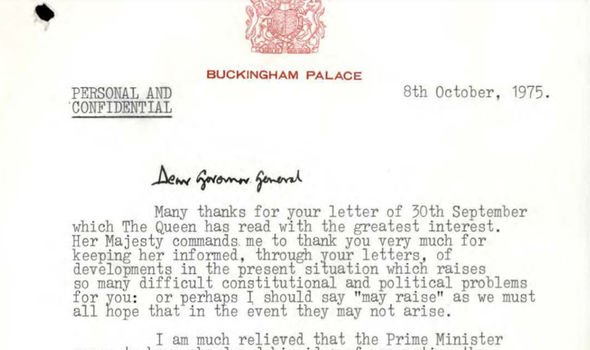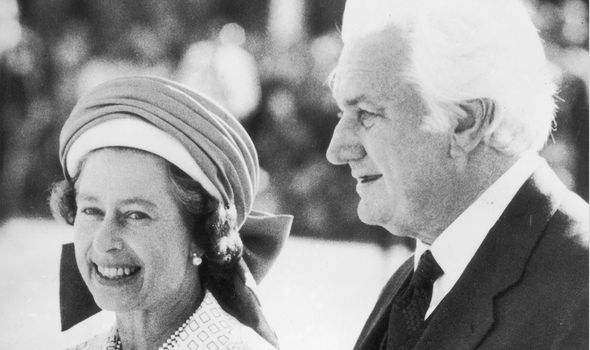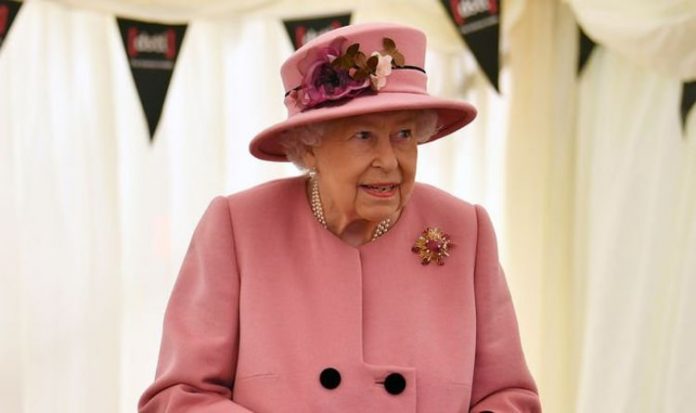Ms Hocking was fighting for the release of the so-called Palace Letters for four years and explained that it was made “very clear” in the court case that the Queen did not wish them to be made public. At first, Ms Hocking’s legal battle was unsuccessful but in May this year it was ruled that the Archives should reconsider their rejection, and in July they were released in full. The Palace Letters consist of 45-year-old correspondence between the Queen, her private secretary and the Governor-General of Australia in the lead up to the Dismissal.
The Dismissal is a famous moment of political upheaval in Australia, when the Governor-General Sir John Kerr ‒ who is the Queen’s representative in Australia ‒ dismissed Prime Minister Gough Whitlam and his government in 1975, after he failed to get his budget passed.
Leader of the Opposition Malcolm Fraser was then installed as caretaker Prime Minister.
Debate has raged ever since as to whether Sir John had the right to make this decision and to what extent the Queen and the royal household were involved in that decision.
However, until now the specifics around what happened in the lead-up to the Dismissal have been murky at best because certain materials, such as these letters, were not made public.

Jenny Hocking claimed the Queen tried to “embargo” the letters (Image: GETTY)

One of the letters from Sir Martin Charteris to Sir John Kerr (Image: National Archives of Australia)
Ms Hocking argued that the notion that the Queen would be able to block the release of these letters is “shocking” and implies that there are residual relics of Empire remaining even now in a modern, independent democracy.
She told Express.co.uk: “It was shocking that the Queen can prevent us from seeing such important historical documents when we are no longer a colony, we are not at a residual point of post-Empire and for any self-respecting nation it was really quite a shocking situation.
“So the thought that there was a piece of our history that we couldn’t view because the Queen didn’t want us to, I think, drove many people’s concerns about the fact that we couldn’t see the letters.
“It certainly was my overwhelming reaction of how pleased I was for that fact of history and the fact that we now control those records, which are, after all, in our own archives, they’re not in the Queen’s archive, the Royal Archives, they’re in our archives in Canberra.
READ MORE: Queen’s letters were released ‘against her wishes’ after legal battle

Historian Jenny Hocking (Image: Janusz Molinski Photography)
“And that’s a wonderful thing, that’s a marvellous outcome of that decision and, of course, I was delighted the specific letters now become a part of our history of the Dismissal, which has been so difficult to write completely, fully, because we haven’t had access to all these critical documents and now, I think, we have.”
She added that this is a first in terms of any Commonwealth nation being able to overturn the so-called “convention of royal secrecy”.
Ms Hocking said: “Never before has the correspondence of a reigning monarch been released against her wishes – and it was against her wishes, that much was made very clear to the court and the High Court judgement made that very clear in fact, as well, but they made the wonderful statement that Australian statute law must prevail.
“Well, you know, it’s 2020 and we have to be told that Australian statute law prevails over the wishes of the monarch.
DON’T MISS
Princess Anne criticised for £16k private jet to see rugby match [INSIGHT]
Prince Harry’s ‘tone deaf’ comments about London torn apart [EXPERTS]
Peter Philips exposes stark warning he was given before big royal day [REVEALED]

The Queen and Sir John Kerr (Image: GETTY)
“I happen to think that’s a very good thing.”
The court case regarding the letters ended up being relatively high profile and garnered wide-ranging support, from the fact her legal team worked pro-bono to the $58,501 raised by 693 supporters on her crowdfunder ‘Release the Palace Letters’.
Ms Hocking added that there has been an upsurge in republicanism in Australia as a result of this case.
The historian, who is on the National Committee of the Australian Republic Movement, said there has been a boost in interest and membership.
She said: “The fact that the Queen is still imposing an embargo even this year over material in our own archives.
“I mean, there is another example right there, quite aside from the letters themselves, the fact that the Queen was imposing an embargo over those letters in our own archives, that’s intolerable.
“So I think all those things have made people realise there are aspects of our residual relationship as a conditional monarchy that are still troubling and we need to sever.”
As for the contents of the letters, a Buckingham Palace spokesperson said after the release of the letters that they demonstrated that neither the Queen nor the royal household “had any role” in the dismissal of Mr Whitlam.
However, Ms Hocking rejects this assessment, claiming that “there is no way you can read these letters and imagine that the letters themselves did not play a part in the decision”.







